
Jane Mayer’s Dark Money is a magisterial portrait of the right-wing billionaires who have “weaponized” conservative philanthropy and pulled the GOP ever further right. Yet Mayer’s account fails to explain something just as alarming: the far-right surge from the grassroots.
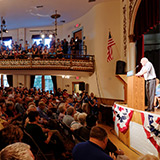
Paul Krugman misunderstands the Sanders campaign’s theory of change. It isn’t that a high-minded leader can draw out our best selves and translate those into more humane lawmaking. It is that a campaign for a more equal democracy can build power, in networks of activists and across constituencies.
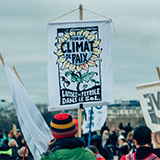
In a special audio dispatch, Daniel Aldana Cohen and Kate Aronoff discuss what the COP21 deal will mean for the climate movement in 2016. They hear from activists who were in the streets in Paris, as well as from UNFCCC veteran J. Timmons Roberts, about why we need a wartime-level mobilization today.
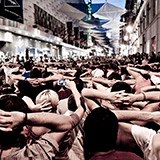
Anarchists are better dreamers than doers. A successful movement requires compromise, organization, and leadership to actually get things done.
With a counter-argument by Marina Sitrin.

Minneapolis protesters’ call to #ReleasetheTapes exemplifies the movement’s strategic use of symbolic demands to win in the court of public opinion.

We must tally not only the advantages but also the costs of the LGBT rights movement’s strategic turn to marriage equality.
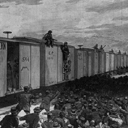
At its most radical, labor republicanism envisioned not only freedom from wage slavery but cooperative self-organization. It also challenged women’s domination in the home—something Alex Gourevitch’s new history misses.
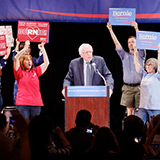
Political parties are essential to a healthy democracy. And right now, for Americans on the left, the Democrats are the only party we have.
With a counter-argument from David Marcus.
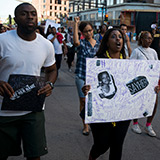
To seek liberation for black people is also to destabilize inequality in the United States at large, and to create new possibilities for all who live here.

We can appreciate the positive changes LBJ’s Great Society programs brought about without downplaying their weaknesses in conception and execution.

It is time to think about class. The insurgencies we most need today are the insurgencies of large numbers.
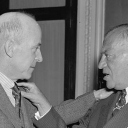
Only a mass movement by union members and sympathetic workers will transform organized labor into the bold agent of change it once was.
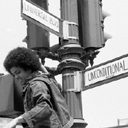
Without strong opposition at home, the “war on terror” will stretch into a third decade, with no plausible sign of a conclusion.
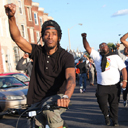
The Black Lives Matter movement’s appeal to human rights has deep roots in the history of the black freedom struggle.
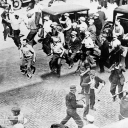
As historian Steve Fraser sees it, we should look toward the “long nineteenth century” for inspiration in constructing a new, lasting American resistance to capitalism.




















